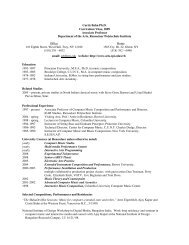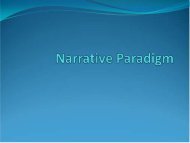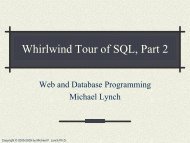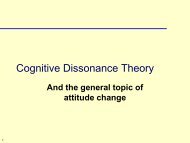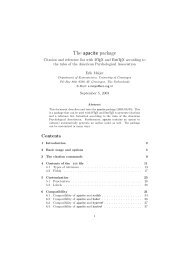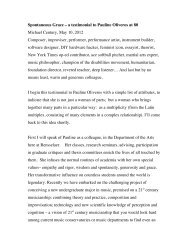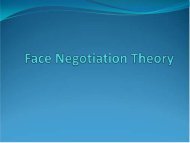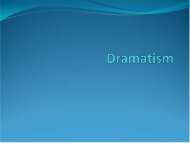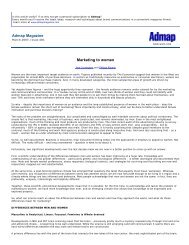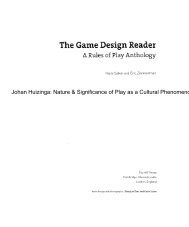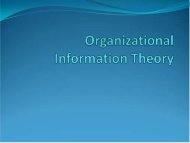The Game Design Document [.pdf]
The Game Design Document [.pdf]
The Game Design Document [.pdf]
Create successful ePaper yourself
Turn your PDF publications into a flip-book with our unique Google optimized e-Paper software.
Another similar game along this genre is 3rd World Farmer. You control the lives of a<br />
family living in a 3rd world country, buying and planting crops and dealing with the realities<br />
of being able to send your children to school. While the game is fairly simple, I do not see it<br />
being engaging for young audiences, and deals with deeper social ills that may upset them.<br />
Additionally, I do not want this game to be moving kids toward foreign aid, but simply<br />
taking care of home first.<br />
Another Sim game that has a similar level and style of resource balancing is Sim Earth.<br />
While not nearly as complicated as replicating an entire planet, Heartland will borrow on the<br />
design that while individual factors can be directly manipulated, these manipulations have a<br />
cost and a drawback in that they also can throw other factors out of balance if you meddle<br />
too much in the wrong directions.<br />
Along the line of research, the following website by the United States Environmental<br />
Protection Agency has proven incredibly useful:<br />
http://www.epa.gov/oecaagct/ag101/crop.html<br />
<strong>The</strong> following sites have also contributed to research:<br />
• University of California Sustainable Agriculture Program<br />
http://www.sarep.ucdavis.edu/Concept.htm<br />
• Little Red Tractor - BBC Program teaching about different aspects of farms to young<br />
children<br />
http://www.bbc.co.uk/cbeebies/littleredtractor/<br />
Target Audience<br />
I am aiming this game towards grade-school age children, from 5-10, to be used in both<br />
a home and/or educational setting. <strong>The</strong> game is simple and self-explaining so as to allow<br />
children of varying educational levels to play it. <strong>The</strong>re will be no mathematics or<br />
memorization of complicated game mechanics as everything can be seen as simple benefit<br />
or detriment bars. <strong>The</strong> video clips explaining the mechanics of the game and real life will<br />
use simple terms anyone can understand while still conveying the necessary meaning.<br />
Introduction and Impact<br />
In this game, kids will control a small farm plot and manage simplified environmental<br />
factors such as rain and pests. Progressing through several different and increasingly<br />
complicated crops to grow, the children learn about what it takes to grow the fruits and<br />
vegetables that go onto their plates. I hope that these children will grow up knowing how<br />
important some of these factors like pollution and having enough land are, as we as a<br />
nation are beginning to clash when it comes to agricultural needs. Armed with a basic<br />
information of what plants need to grow and how humans can affect that, these kids can<br />
help shape policy for the better when their generation is in charge.<br />
Storyline<br />
<strong>The</strong> rough goal of the player is outlined by their mentor, a second farmer named Stan,<br />
characterized by a typical stocky, slightly overweight, plaid-and-overalls wearing man with a<br />
piece of straw hanging out of their mouth. Stan is an older, experienced farmer teaching the


![The Game Design Document [.pdf]](https://img.yumpu.com/30117124/2/500x640/the-game-design-document-pdf.jpg)
